 John Abowd
John Abowd is the Edmund Ezra Day Professor of Economics and the director of graduate studies in economics at Cornell University, where he has taught since 1987. He also is a professor of information science and directs Cornell’s newly formed Labor Dynamics Institute (LDI). Abowd’s current research and many activities of the LDI focus on the creation, dissemination, privacy protection, and used of linked longitudinal data on employees and employers. A research associate at the National Bureau of Economic Research, Abowd also serves as a distinguished senior research fellow at the United States Census Bureau. There he provides leadership for the Longitudinal Employer-Household Dynamics Program that produces research and public-use data integrating censuses, demographic surveys, economic surveys, and administrative data. Before coming to Cornell Abowd served on the faculty at Princeton University, the University of Chicago, and the Massachusetts Institute of Technology. He has an A.B. in economics from the University of Notre Dame and a Ph.D. in economics from the University of Chicago.
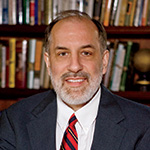 Laurence M. Ball
Laurence M. Ball is a professor of economics at Johns Hopkins University, which he joined in 1994. His research areas include price adjustment and inflation, monetary and fiscal policy, and unemployment and he wrote
Money, Banking, and Financial Markets (Worth Publishers). Ball is a research associate at the National Bureau of Economic Research and has been a visiting scholar at the Board of Governors, the Bank of England, the Bank of Japan, Norges Bank, the Reserve Bank of Australia, the Reserve Bank of New Zealand, the Hong Kong Monetary Authority, and the International Monetary Fund. Before joining Johns Hopkins, he was an assistant professor of economics at Princeton University from 1989 to 1994 and at the Graduate School of Business at New York University from 1985 to 1989. He earned a B.A. in economics from Amherst College, and a Ph.D. in economics from the Massachusetts Institute of Technology.
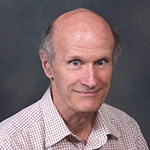 Truman Bewley
Truman Bewley has been the Alfred C. Cowles Professor of Economics at Yale University since 1983, and currently serves as the director of graduate studies for the department of economics. His initial research focus on general equilibrium theory later expanded to work on models linking general equilibrium theory with macroeconomics. In the 1990s Bewley conducted numerous interviews with business and labor leaders in an effort to understand why there is resistance to reducing wages during a business cycle downturn. This project’s results appear in his book,
Why Wages Don’t Fall During a Recession (Harvard UP, 1999). He has since conducted a large set of interviews with businesspeople about pricing behavior and plans to report these findings in a future book. In January 2013 Bewley was elected a distinguished fellow of the American Economic Association. Before coming to Yale he taught at Northwestern University and Harvard University. He received a B.A. in history from Cornell University and a Ph.D. in economics from the University of California at Berkeley.
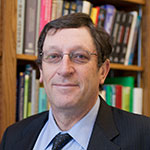 David Blanchflower
David Blanchflower is the Bruce V. Rauner Professor of Economics at Dartmouth College, where he has been a faculty member since 1989. A specialist in labor economics, he is also a research associate at the National Bureau of Economic Research and a visiting scholar at the Federal Reserve Bank of Boston. From 2006 to 2009 Blanchflower was a member of the Bank of England’s Monetary Policy Committee, and in June 2009 was made a Commander of the British Empire for “services to economics and to the Monetary Policy Committee, Bank of England,” as noted in the Queen’s Birthday Honours List. Blanchflower is the economics editor of the
New Statesman, a British weekly news magazine, an economics columnist at the
Independent, and a contributing editor for Bloomberg TV.Before joining Dartmouth, he was an assistant professor of economics at the University of Surrey. Blanchflower earned a B.A. in economics from the University of Leicester, an M.S. in economics from the University of Wales, and a Ph.D. in economics from the University of London.
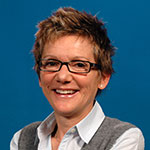 Mary C. Daly
Mary C. Daly is the associate director of research and group vice president at the Federal Reserve Bank of San Francisco. In her role at the Bank, Daly supports the monetary policy function and serves as a system resource on issues related to employee retirement and health benefits. Daly’s research interests span public finance, labor economics, and public policy; she has published widely on issues related to employment, wages, income inequality, and disability policy. Daly is currently a fellow with the National Academy of Social Insurance, a visiting scholar at the Congressional Budget Office, and previously served on the Social Security Advisory Board’s Technical Panel. In 1996 she joined the Bank as economist after completing a National Institute on Aging postdoctoral fellowship at Northwestern University. Daly earned a B.A. from the University of Missouri-Kansas City, an M.S. from the University of Illinois at Champaign-Urbana, and Ph.D. in economics from Syracuse University.
 Juan J. Dolado
Juan J. Dolado is a professor of economics at Universidad Carlos III de Madrid. His main research fields are labor economics, econometric theory, and applied macroeconomics. Dolado is also a research fellow at the Centre for Economic Policy Research, a fellow of the European Economic Association, and an honorary fellow of the Spanish Economic Association, for which he served as president in 2001. Currently he serves as a coeditor of
Labour Economics. From 2006 through 2010, he was a member of Group of Economic Policy Advisors (GEPA) for the European Commission President José Manuel Barroso. In 2005 and 2009 he served as a member of the Spanish Socio-Economic Council (CES). Prior to his current position, Dolado was chief economist in the quantitative studies division of the research department at the Bank of Spain and a lecturer at Oxford University. He has a B.A. in economics and a math diploma from the Universidad de Complutense de Madrid, a M.S. in mathematical economics from the London School of Economics, and a Ph.D. in economics from Oxford University.
 Christopher Erceg
Christopher Erceg is currently serving as a research fellow at the International Monetary Fund while on leave until Fall 2013 as an associate director in the International Finance Division at the Board of Governors of the Federal Reserve System. Erceg played a major role in initiating and developing the Board’s open economy DSGE model (SIGMA), and in leading efforts to apply the model to policy questions. A major component of his recent research has been on fiscal policy issues, including the effects of fiscal adjustment when monetary policy is at the zero lower bound. Erceg has made important contributions to the literature on optimal monetary policy and to assessing the channels through which monetary policy affects the economy. He has also published papers on an array of open economy topics, ranging from commodity price behavior to key determinants of the trade balance. Erceg has served as an adjunct professor at Columbia University, Georgetown University, Johns Hopkins University, and Syracuse University. He holds a B.A in economics and political/social thought from the University of Virginia, and a Ph.D. in economics from the University of Chicago.
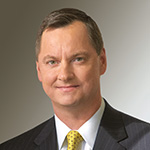 Charles L. Evans
Charles L. Evans is the President and Chief Executive Officer of the Federal Reserve Bank of Chicago, a
post he assumed in September 2007. Since 2003 Evans had been a senior vice president and the Chicago Fed’s director of research, supervising the Bank’s work on monetary policy, banking, financial markets, and regional economic conditions. From 1998 to 2003 he was a vice president and senior economist with responsibility for the macroeconomics research group. Evans’s own research has focused on measuring the effects of monetary policy on U.S. economic activity, inflation, and financial market prices. Before joining the Chicago Fed in 1991 as an economist in the research department, Evans taught economics at the University of South Carolina from 1988 to 1991; he has also taught at the University of Chicago and the University of Michigan. Evans earned a B.A. in economics from the University of Virginia and a Ph.D. in economics from Carnegie Mellon University.
 Antonio Fatás
Antonio Fatás is the Portuguese Council Chaired Professor of Economics at INSEAD, where he served as dean of the M.B.A. program from September 2004 to August 2008. His research covers areas such as the macroeconomic effects of fiscal policy, the connections between business cycles and growth, and how institutions affect macroeconomic policy. Fatás is also a research fellow in residence at the Center for Business and Public Policy, housed at Georgetown University’s McDonough School of Business, and a research fellow at the Centre for Economic Policy Research. He has worked as an external consultant for the Board of Governors of the Federal Reserve System, the International Monetary Fund, the Organisation for Economic Co-operation and Development, the government of the United Kingdom, and the World Bank. Fatás has undergraduate and master’s degrees from the Universidad de Valencia, and an M.A. and Ph.D. in economics from Harvard University.
 Christopher L. Foote
Christopher L. Foote is a senior economist and policy advisor in the research department at the Federal Reserve Bank of Boston, which he joined in October 2003. His primary fields of research are macroeconomics and labor economics. Foote previously served as the acting director of the Bank’s Center for Behavioral Economics. Prior to his current position, from 1996 to 2002 Foote was an assistant and then an associate economics professor in the department of economics at Harvard University, where he also served as director of undergraduate studies from 1998 to 2001. In July 2002 he accepted a position as senior staff economic with the Council of Economic Advisers, becoming chief economist at the CEA in February 2003. From May to September 2003 Foote served as an economic advisor to the Coalition Provisional Authority in Baghdad, returning briefly to Iraq in January and February 2004. Foote has a B.A. from the College of William and Mary and earned his Ph.D. in economics at the University of Michigan.
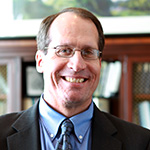 Jeffrey (Jeff) C. Fuhrer
Jeffrey (Jeff) C. Fuhrer is an executive vice president and senior policy advisor at the Federal Reserve Bank of Boston, where he is responsible for the Bank’s regional and community outreach functions. He has published numerous scholarly papers on the interactions among monetary policy, inflation, consumer spending, and asset prices, and is an associate economist of the Federal Open Market Committee. Fuhrer joined the Bank’s research department in June 1992 as an assistant vice president and economist, and from 1995–2001 headed its open economy macro/international section. In 2000 Fuhrer was named senior vice president and monetary policy advisor, and in 2006 he was named executive vice president. He directed the Bank’s research department from 2001 through 2010. Fuhrer began his career at the Board of Governors of the Federal Reserve System, first as a research assistant, and then in 1985 returned as a senior economist after earning his doctorate. He earned an A.B. in economics with highest honors from Princeton University plus an M.A. and a Ph.D. in economics from Harvard University.
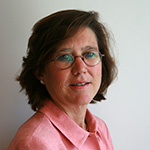 Carol Graham
Carol Graham is the Leo Pasvolsky Senior Fellow at the Brookings Institution and the College Park Professor at the University of Maryland’s School of Public Policy. She is a research fellow at the Institute for the Study of Labor (IZA) in Bonn, Germany and is currently serving on a National Academy of Sciences panel that is examining well-being metrics and public policy. From 2002 to 2004, Graham served as a vice president at Brookings. She has also served as special advisor to the vice president of the Inter-American Development Bank, as a visiting fellow in the Office of the Chief Economist of the World Bank, and as a consultant to the International Monetary Fund and the Harvard Institute for International Development. A prolific author, her most recent books are:
The Pursuit of Happiness: An Economy of Well-Being (Brookings, 2011) and
Happiness around the World: The Paradox of Happy Peasants and Miserable Millionaires (Oxford University Press, 2010). She has an A.B. from the Woodrow Wilson School of Public Affairs at Princeton University, an M.A. in international economics and Latin American studies from the School of Advanced International Studies at Johns Hopkins University, and a D. Phil. from Oxford University in political economy, economic development, and Latin American studies.
 Fabià Gumbau-Brisa
Fabià Gumbau-Brisa is a senior economist in macroeconomics/international section of the research department at the Federal Reserve Bank of Boston which he joined in 2004. Gumbau-Brisa’s primary research fields are open economy macroeconomics, monetary policy, development economics, and quantitative methods. In April 2010 he became a Chartered Financial Analyst. Gumbau-Brisa earned a B.A.in economics and business from the Universitat Pompeu Fabra (Barcelona), and an M.A. and Ph.D. in economics from Harvard University.
 Bart Hobijn
Bart Hobijn joined the Federal Reserve Bank of San Francisco in September 2008, where he is a senior research advisor in the economic research department. In addition, he teaches as a part-time full professor at the VU University Amsterdam. Hobijn is an applied macroeconomist whose special interests are labor market dynamics, price measurement, and how technological progress contributes to economic growth. Prior to joining the San Francisco Fed, he was a research officer in the research and statistics group at the Federal Reserve Bank of New York. Hobijn completed his M.S. in econometrics at Erasmus University Rotterdam and his Ph.D. at New York University.
 Daiji Kawaguchi
Daiji Kawaguchi is an associate professor of economics at Hitotsubashi University (Tokyo). He specializes in labor economics and econometrics. In addition to his academic position at Hitotsubashi, Kawaguchi is a faculty fellow at the Research Institute of Economy, Trade and Industry, a research associate at the Tokyo Center for Economic Research, and a research associate at the Institute for the Study of Labor (IZA). Before joining Hitotsubashi faculty in 2005, Kawaguchi was an assistant professor of economics at Osaka University and the University of Tsukuba. He has also been a visiting scholar at University of California at Berkeley and at the Australian National University. Kawaguchi earned a B.A. from Waseda University, an M.A. from Hitotsubashi University, and a Ph.D. from Michigan State University.
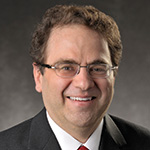 Narayana R. Kocherlakota
Narayana R. Kocherlakota is the President and Chief Executive Officer of the Federal Reserve Bank of Minneapolis
. Before assuming his current position in October 2009, Kocherlakota served as a member of the Bank’s research staff and as a research consultant. From 1998 to 2002 he was a professor of economics at the University of Minnesota, and from 2002 to 2005 he was a professor of economics at Stanford University. Kocherlakota returned to the University of Minnesota in 2006 to chair its economics department through 2008, and remained a professor there until 2010. As a scholar, his work has included both theoretical and empirical contributions to monetary economics and financial economics. In 2005 Kocherlakota was made a fellow of the Econometric Society.
Foreign Policy magazine named him one of the top 100 Global Thinkers in 2012. Kocherlakota earned an A.B. in mathematics from Princeton University and a Ph.D. in economics from the University of Chicago.
 Andrew Levin
Andrew Levin is currently a visiting scholar in the research department at the International Monetary Fund while on leave from his position at the Board of Governors of the Federal Reserve System. In 1992 Levin joined the Board as an economist working on monetary policy, macroeconomics, and econometrics and statistics. From 2010 to 2012 he served as a special adviser to the Board and assisted the Chairman and Vice Chair in the formulation and communication of monetary policy strategy. Before coming to the Board Levin was an assistant professor of economics at the University of California at San Diego from 1989 to 1992. Since then he has served as an adjunct professor of economics at Georgetown University, Johns Hopkins University, and Columbia University. From 2002 to 2005 Levin worked as an external consultant for the European Central Bank’s Inflation Persistence Network. Levin has a B.A. in economics and mathematics from Yale University and a Ph.D. in economics from Stanford University.
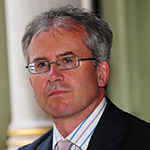 David Miles
David Miles has been a member of the Bank of England’s Monetary Policy Committee since June 2009; in February 2012 he was re-appointed for a second term that runs until May 2015. Before joining the Bank of England, he was Morgan Stanley’s chief U.K. economist from October 2004 to May 2009. Miles is also a visiting scholar at Imperial College London; previously he had been a professor of financial economics and head of the finance department at Imperial College. As an economist Miles has focused on the interaction between financial markets and the wider economy. He authored a 2004 report for the H.M. Treasury titled “The U.K. Mortgage Market: Taking a Longer-Term View.” Miles is a council member of the Royal Economic Society, a research fellow at the Centre for Economic Policy Research and at CESifo in Munich. Miles has a first-class honors degree from Oxford University and a Ph.D. in economics from the University of London.
 Tetsushi Murao
Tetsushi Murao is an assistant professor in the department of economic engineering and a member of the economics faculty at Kyushu University (Fukuoka, Japan). His research interests are centered in the fields of firm/industry dynamics and job/worker flows. Murao holds a B.A. in economics from Yokohama National University and a Ph.D. in economics from Hitotsubashi University.
 Giovanni P. Olivei
Giovanni P. Olivei is a
vice president at the Federal Reserve Bank of Boston, where he oversees the research department’s macroeconomics/international economics section. Olivei’s current work focuses on monetary economics, inflation dynamics, current account dynamics, and exchange rates. In 1998 Olivei started as an economist in the Bank’s research department, was elevated to senior economist in 2002, and in 2005 was promoted to senior economist and policy advisor. In January 2008 he assumed the duties of a vice president. Olivei earned his B.A. in economics at the Università Commerciale Luigi Bocconi (Milan) and his Ph.D. in economics from Princeton University.
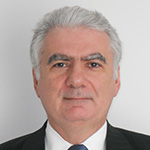 Athanasios Orphanides
Athanasios Orphanides is a senior lecturer at the Massachusetts of Technology’s Sloan School of Management. He is also a senior fellow at the Center for Financial Studies at Goethe University (Frankfurt) and a visiting scholar at the Federal Reserve Bank of Boston. Orphanides’s research centers on central banking, finance, and political economy; he has been involved in the ongoing debate regarding the euro zone crisis. Along with Michael Bordo, Orphanides coedited the forthcoming NBER book,
The Great Inflation: The Rebirth of Modern Central Banking. From May 2007 to May 2012, Orphanides served as the Governor of the Central Bank of Cyprus, overseeing the introduction of the euro in Cyprus. He subsequently served as a member of the European Central Bank’s Governing Council between January 2008 and May 2012. Following the 2010 creation of the European Systemic Risk Board, Orphanides was elected a member of its first steering committee. Prior to joining the Central Bank of Cyprus, Orphanides served as a senior advisor at the Federal Reserve Board, where he started his professional career as an economist in 1990. He has an S.B in mathematics and economics as well as a Ph.D. in economics from the Massachusetts Institute of Technology.
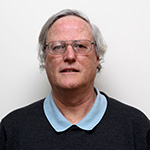 Joe Peek
Joe Peek is a vice president and economist in the research department at the Federal Reserve Bank of Boston, where he heads the finance section. He is also a research associate at Columbia University’s Center on the Japanese Economy and Business. Peek’s current research interests are in financial stability, macroprudential regulation, international banking, Japanese banking problems, and monetary policy. Before joining the Boston Fed, from 2000 to 2011 Peek held the Gatton Chair in International Banking and Financial Economics at the University of Kentucky’s Gatton College of Business and Economics. Earlier in his career, Peek was a professor of economics at Boston College and was a visiting scholar at the Boston Fed from 1985 through 2000. He was a visiting professor at the University of Canterbury in Christchurch, New Zealand in Spring 1992 and 1994. Peek earned a B.S. in mathematics and an M.S. in economics from Oklahoma State University, and his Ph.D. in economics from Northwestern University.
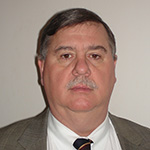 David Reifschneider
David Reifschneider is the deputy director of the division of research and statistics at the Board of Governors of the Federal Reserve System. Reifschneider joined the Board in 1982 as an economist and, after a tour of duty from 1986 to 1988 as the U.S. Desk officer at the Organisation of Economic Cooperation and Development, he was promoted to senior economist in 1989. In 1995, Reifschneider became head of the Board’s domestic macroeconomic modeling group, and in 2000 was appointed to the Board’s official staff. While at the Board, Reifschneider has engaged in and supervised a wide range of FOMC-related activities, including forecasting, macro modeling, monetary policy strategy, fiscal policy analysis, bank stress testing, and general macroeconomic analysis. His research interests have primarily focused on issues related to monetary and fiscal policy, such as the implications of the zero lower bound. Reifschneider earned a B.A. in economics from Cornell University in 1976 and a Ph.D. in economics from the University of Wisconsin at Madison in 1982.
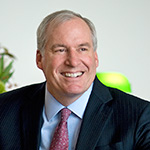 Eric S. Rosengren
Eric S. Rosengren is the President and Chief Executive Officer of the Federal Reserve Bank of Boston. Prior to his current post, he held senior positions at the Bank in both the research department and the division of bank supervision, regulation, and credit. In his research, Rosengren has focused on the link between financial problems and the real economy, publishing extensively on macroeconomics, international banking, bank supervision, and risk management. In 1985 Rosengren joined the Bank as an economist in the research department, and was promoted to assistant vice president in 1989 and to vice president in 1991, when he also became head of the department’s banking and monetary policy section. In 2000 Rosengren became senior vice president and head of the department of supervision, regulation, and credit, in 2003 was given the additional title of chief discount officer, and in 2005 was named executive vice president. While in the bank supervision function, he gained significant domestic and international regulatory experience related to the Basel II Capital Accord. Rosengren earned a B.A. in economics from Colby College, and an M.S. and Ph.D. in economics from the University of Wisconsin at Madison.
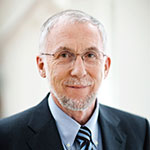 Lars E.O. Svensson
Lars E.O. Svensson has been the Deputy Governor of Sveriges Riksbank since May 2007 and an affiliated professor at the Institute for International Economic Studies, Stockholm University since June 2009.In 2012 he received the Great Gold Medal from the Royal Swedish Academy of Engineering Sciences. From 2001 to 2009 Svensson was a professor of economics at Princeton University and from 1984 to 2003 was a professor of international economics at Stockholm University’s Institute for International Economic Studies.His scholarly and policy interests center on macroeconomics, monetary economics, and international finance. Svensson was an advisor to Sveriges Riksbank during 1990-2007 and was a member of the Monetary Policy Advisory Board and the Economic Advisory Panel of the Federal Reserve Bank of New York until his appointment as Deputy Governor of the Riksbank. A seasoned consultant for international, Swedish, and U.S agencies and organization, in 2000-2001 Svensson was commissioned by the New Zealand government to review the country’s monetary policy, and in 2002 he chaired a committee reviewing Norway’s monetary policy. Among his many affiliations, highlights include being a fellow of the Econometric Society, a fellow of the European Economic Association, a research associate of the National Bureau of Economic Research, and a research fellow of the London-based Centre for Economic Policy Research. He chaired the Prize Committee for the Alfred Nobel Memorial Prize in Economic Sciences during 1999–2001, served as a committee member during 1993–2002, and the committee secretary during 1988–1992.Svensson has a B.A. in economics from Stockholm University, an M.S. in mathematics from the Royal Institute of Technology (Stockholm), and a Ph.D. in economics from Stockholm University.
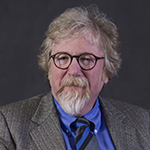 Geoffrey M.B. Tootell
Geoffrey M.B. Tootell is a senior vice president and the director of the research department at the Federal Reserve Bank of Boston. As a Bank officer, his primary responsibilities include overseeing the work conducted by the research department, particularly the economic analysis it produces for the monetary policy deliberations conducted by the Bank’s President and Board of Directors. Tootell’s own research focuses on monetary policy, with particular emphasis on the determinants of inflation and how the FOMC arrives at its decisions. He has explored the role that asset prices might play in policymaking and whether the Federal Reserve’s economic forecasts might be improved by incorporating bank supervisory information. Tootell’s broader research interests encompass macroeconomics, international economics, and political economy. He has written and coauthored a number of influential articles on racial patterns in mortgage lending. In 1989 Tootell began his career at the Bank as an economist, in 1993 was promoted to assistant vice president and economist, and in 1998 named a vice president. He was promoted to senior vice president and deputy director of research in 2008 before becoming the research director in January 2011. Tootell has an A.B from Harvard College, where as an undergraduate he was designated a John Harvard Scholar, and earned his Ph.D. in economics from Harvard University.
 J. Christina Wang
J. Christina Wang is a senior economist and policy advisor in the finance section of the research department at the Federal Reserve Bank of Boston, which she joined in 2001. Her current research interests are in refining a consistent measure of bank output, analyzing the impact of financial contracts on the business cycle, and understanding optimal banking regulation. Wang earned her B.A. in economics at Tsinghua University, China, her M.A. in economics at the University of Western Ontario, and her Ph.D. in economics at the University of Michigan at Ann Arbor.
 John Abowd is the Edmund Ezra Day Professor of Economics and the director of graduate studies in economics at Cornell University, where he has taught since 1987. He also is a professor of information science and directs Cornell’s newly formed Labor Dynamics Institute (LDI). Abowd’s current research and many activities of the LDI focus on the creation, dissemination, privacy protection, and used of linked longitudinal data on employees and employers. A research associate at the National Bureau of Economic Research, Abowd also serves as a distinguished senior research fellow at the United States Census Bureau. There he provides leadership for the Longitudinal Employer-Household Dynamics Program that produces research and public-use data integrating censuses, demographic surveys, economic surveys, and administrative data. Before coming to Cornell Abowd served on the faculty at Princeton University, the University of Chicago, and the Massachusetts Institute of Technology. He has an A.B. in economics from the University of Notre Dame and a Ph.D. in economics from the University of Chicago.
John Abowd is the Edmund Ezra Day Professor of Economics and the director of graduate studies in economics at Cornell University, where he has taught since 1987. He also is a professor of information science and directs Cornell’s newly formed Labor Dynamics Institute (LDI). Abowd’s current research and many activities of the LDI focus on the creation, dissemination, privacy protection, and used of linked longitudinal data on employees and employers. A research associate at the National Bureau of Economic Research, Abowd also serves as a distinguished senior research fellow at the United States Census Bureau. There he provides leadership for the Longitudinal Employer-Household Dynamics Program that produces research and public-use data integrating censuses, demographic surveys, economic surveys, and administrative data. Before coming to Cornell Abowd served on the faculty at Princeton University, the University of Chicago, and the Massachusetts Institute of Technology. He has an A.B. in economics from the University of Notre Dame and a Ph.D. in economics from the University of Chicago. Laurence M. Ball is a professor of economics at Johns Hopkins University, which he joined in 1994. His research areas include price adjustment and inflation, monetary and fiscal policy, and unemployment and he wrote Money, Banking, and Financial Markets (Worth Publishers). Ball is a research associate at the National Bureau of Economic Research and has been a visiting scholar at the Board of Governors, the Bank of England, the Bank of Japan, Norges Bank, the Reserve Bank of Australia, the Reserve Bank of New Zealand, the Hong Kong Monetary Authority, and the International Monetary Fund. Before joining Johns Hopkins, he was an assistant professor of economics at Princeton University from 1989 to 1994 and at the Graduate School of Business at New York University from 1985 to 1989. He earned a B.A. in economics from Amherst College, and a Ph.D. in economics from the Massachusetts Institute of Technology.
Laurence M. Ball is a professor of economics at Johns Hopkins University, which he joined in 1994. His research areas include price adjustment and inflation, monetary and fiscal policy, and unemployment and he wrote Money, Banking, and Financial Markets (Worth Publishers). Ball is a research associate at the National Bureau of Economic Research and has been a visiting scholar at the Board of Governors, the Bank of England, the Bank of Japan, Norges Bank, the Reserve Bank of Australia, the Reserve Bank of New Zealand, the Hong Kong Monetary Authority, and the International Monetary Fund. Before joining Johns Hopkins, he was an assistant professor of economics at Princeton University from 1989 to 1994 and at the Graduate School of Business at New York University from 1985 to 1989. He earned a B.A. in economics from Amherst College, and a Ph.D. in economics from the Massachusetts Institute of Technology.  Truman Bewley has been the Alfred C. Cowles Professor of Economics at Yale University since 1983, and currently serves as the director of graduate studies for the department of economics. His initial research focus on general equilibrium theory later expanded to work on models linking general equilibrium theory with macroeconomics. In the 1990s Bewley conducted numerous interviews with business and labor leaders in an effort to understand why there is resistance to reducing wages during a business cycle downturn. This project’s results appear in his book, Why Wages Don’t Fall During a Recession (Harvard UP, 1999). He has since conducted a large set of interviews with businesspeople about pricing behavior and plans to report these findings in a future book. In January 2013 Bewley was elected a distinguished fellow of the American Economic Association. Before coming to Yale he taught at Northwestern University and Harvard University. He received a B.A. in history from Cornell University and a Ph.D. in economics from the University of California at Berkeley.
Truman Bewley has been the Alfred C. Cowles Professor of Economics at Yale University since 1983, and currently serves as the director of graduate studies for the department of economics. His initial research focus on general equilibrium theory later expanded to work on models linking general equilibrium theory with macroeconomics. In the 1990s Bewley conducted numerous interviews with business and labor leaders in an effort to understand why there is resistance to reducing wages during a business cycle downturn. This project’s results appear in his book, Why Wages Don’t Fall During a Recession (Harvard UP, 1999). He has since conducted a large set of interviews with businesspeople about pricing behavior and plans to report these findings in a future book. In January 2013 Bewley was elected a distinguished fellow of the American Economic Association. Before coming to Yale he taught at Northwestern University and Harvard University. He received a B.A. in history from Cornell University and a Ph.D. in economics from the University of California at Berkeley. David Blanchflower is the Bruce V. Rauner Professor of Economics at Dartmouth College, where he has been a faculty member since 1989. A specialist in labor economics, he is also a research associate at the National Bureau of Economic Research and a visiting scholar at the Federal Reserve Bank of Boston. From 2006 to 2009 Blanchflower was a member of the Bank of England’s Monetary Policy Committee, and in June 2009 was made a Commander of the British Empire for “services to economics and to the Monetary Policy Committee, Bank of England,” as noted in the Queen’s Birthday Honours List. Blanchflower is the economics editor of the New Statesman, a British weekly news magazine, an economics columnist at the Independent, and a contributing editor for Bloomberg TV.Before joining Dartmouth, he was an assistant professor of economics at the University of Surrey. Blanchflower earned a B.A. in economics from the University of Leicester, an M.S. in economics from the University of Wales, and a Ph.D. in economics from the University of London.
David Blanchflower is the Bruce V. Rauner Professor of Economics at Dartmouth College, where he has been a faculty member since 1989. A specialist in labor economics, he is also a research associate at the National Bureau of Economic Research and a visiting scholar at the Federal Reserve Bank of Boston. From 2006 to 2009 Blanchflower was a member of the Bank of England’s Monetary Policy Committee, and in June 2009 was made a Commander of the British Empire for “services to economics and to the Monetary Policy Committee, Bank of England,” as noted in the Queen’s Birthday Honours List. Blanchflower is the economics editor of the New Statesman, a British weekly news magazine, an economics columnist at the Independent, and a contributing editor for Bloomberg TV.Before joining Dartmouth, he was an assistant professor of economics at the University of Surrey. Blanchflower earned a B.A. in economics from the University of Leicester, an M.S. in economics from the University of Wales, and a Ph.D. in economics from the University of London. Mary C. Daly is the associate director of research and group vice president at the Federal Reserve Bank of San Francisco. In her role at the Bank, Daly supports the monetary policy function and serves as a system resource on issues related to employee retirement and health benefits. Daly’s research interests span public finance, labor economics, and public policy; she has published widely on issues related to employment, wages, income inequality, and disability policy. Daly is currently a fellow with the National Academy of Social Insurance, a visiting scholar at the Congressional Budget Office, and previously served on the Social Security Advisory Board’s Technical Panel. In 1996 she joined the Bank as economist after completing a National Institute on Aging postdoctoral fellowship at Northwestern University. Daly earned a B.A. from the University of Missouri-Kansas City, an M.S. from the University of Illinois at Champaign-Urbana, and Ph.D. in economics from Syracuse University.
Mary C. Daly is the associate director of research and group vice president at the Federal Reserve Bank of San Francisco. In her role at the Bank, Daly supports the monetary policy function and serves as a system resource on issues related to employee retirement and health benefits. Daly’s research interests span public finance, labor economics, and public policy; she has published widely on issues related to employment, wages, income inequality, and disability policy. Daly is currently a fellow with the National Academy of Social Insurance, a visiting scholar at the Congressional Budget Office, and previously served on the Social Security Advisory Board’s Technical Panel. In 1996 she joined the Bank as economist after completing a National Institute on Aging postdoctoral fellowship at Northwestern University. Daly earned a B.A. from the University of Missouri-Kansas City, an M.S. from the University of Illinois at Champaign-Urbana, and Ph.D. in economics from Syracuse University. Juan J. Dolado is a professor of economics at Universidad Carlos III de Madrid. His main research fields are labor economics, econometric theory, and applied macroeconomics. Dolado is also a research fellow at the Centre for Economic Policy Research, a fellow of the European Economic Association, and an honorary fellow of the Spanish Economic Association, for which he served as president in 2001. Currently he serves as a coeditor of Labour Economics. From 2006 through 2010, he was a member of Group of Economic Policy Advisors (GEPA) for the European Commission President José Manuel Barroso. In 2005 and 2009 he served as a member of the Spanish Socio-Economic Council (CES). Prior to his current position, Dolado was chief economist in the quantitative studies division of the research department at the Bank of Spain and a lecturer at Oxford University. He has a B.A. in economics and a math diploma from the Universidad de Complutense de Madrid, a M.S. in mathematical economics from the London School of Economics, and a Ph.D. in economics from Oxford University.
Juan J. Dolado is a professor of economics at Universidad Carlos III de Madrid. His main research fields are labor economics, econometric theory, and applied macroeconomics. Dolado is also a research fellow at the Centre for Economic Policy Research, a fellow of the European Economic Association, and an honorary fellow of the Spanish Economic Association, for which he served as president in 2001. Currently he serves as a coeditor of Labour Economics. From 2006 through 2010, he was a member of Group of Economic Policy Advisors (GEPA) for the European Commission President José Manuel Barroso. In 2005 and 2009 he served as a member of the Spanish Socio-Economic Council (CES). Prior to his current position, Dolado was chief economist in the quantitative studies division of the research department at the Bank of Spain and a lecturer at Oxford University. He has a B.A. in economics and a math diploma from the Universidad de Complutense de Madrid, a M.S. in mathematical economics from the London School of Economics, and a Ph.D. in economics from Oxford University. Christopher Erceg is currently serving as a research fellow at the International Monetary Fund while on leave until Fall 2013 as an associate director in the International Finance Division at the Board of Governors of the Federal Reserve System. Erceg played a major role in initiating and developing the Board’s open economy DSGE model (SIGMA), and in leading efforts to apply the model to policy questions. A major component of his recent research has been on fiscal policy issues, including the effects of fiscal adjustment when monetary policy is at the zero lower bound. Erceg has made important contributions to the literature on optimal monetary policy and to assessing the channels through which monetary policy affects the economy. He has also published papers on an array of open economy topics, ranging from commodity price behavior to key determinants of the trade balance. Erceg has served as an adjunct professor at Columbia University, Georgetown University, Johns Hopkins University, and Syracuse University. He holds a B.A in economics and political/social thought from the University of Virginia, and a Ph.D. in economics from the University of Chicago.
Christopher Erceg is currently serving as a research fellow at the International Monetary Fund while on leave until Fall 2013 as an associate director in the International Finance Division at the Board of Governors of the Federal Reserve System. Erceg played a major role in initiating and developing the Board’s open economy DSGE model (SIGMA), and in leading efforts to apply the model to policy questions. A major component of his recent research has been on fiscal policy issues, including the effects of fiscal adjustment when monetary policy is at the zero lower bound. Erceg has made important contributions to the literature on optimal monetary policy and to assessing the channels through which monetary policy affects the economy. He has also published papers on an array of open economy topics, ranging from commodity price behavior to key determinants of the trade balance. Erceg has served as an adjunct professor at Columbia University, Georgetown University, Johns Hopkins University, and Syracuse University. He holds a B.A in economics and political/social thought from the University of Virginia, and a Ph.D. in economics from the University of Chicago.  Charles L. Evans is the President and Chief Executive Officer of the Federal Reserve Bank of Chicago, a
post he assumed in September 2007. Since 2003 Evans had been a senior vice president and the Chicago Fed’s director of research, supervising the Bank’s work on monetary policy, banking, financial markets, and regional economic conditions. From 1998 to 2003 he was a vice president and senior economist with responsibility for the macroeconomics research group. Evans’s own research has focused on measuring the effects of monetary policy on U.S. economic activity, inflation, and financial market prices. Before joining the Chicago Fed in 1991 as an economist in the research department, Evans taught economics at the University of South Carolina from 1988 to 1991; he has also taught at the University of Chicago and the University of Michigan. Evans earned a B.A. in economics from the University of Virginia and a Ph.D. in economics from Carnegie Mellon University.
Charles L. Evans is the President and Chief Executive Officer of the Federal Reserve Bank of Chicago, a
post he assumed in September 2007. Since 2003 Evans had been a senior vice president and the Chicago Fed’s director of research, supervising the Bank’s work on monetary policy, banking, financial markets, and regional economic conditions. From 1998 to 2003 he was a vice president and senior economist with responsibility for the macroeconomics research group. Evans’s own research has focused on measuring the effects of monetary policy on U.S. economic activity, inflation, and financial market prices. Before joining the Chicago Fed in 1991 as an economist in the research department, Evans taught economics at the University of South Carolina from 1988 to 1991; he has also taught at the University of Chicago and the University of Michigan. Evans earned a B.A. in economics from the University of Virginia and a Ph.D. in economics from Carnegie Mellon University. Antonio Fatás is the Portuguese Council Chaired Professor of Economics at INSEAD, where he served as dean of the M.B.A. program from September 2004 to August 2008. His research covers areas such as the macroeconomic effects of fiscal policy, the connections between business cycles and growth, and how institutions affect macroeconomic policy. Fatás is also a research fellow in residence at the Center for Business and Public Policy, housed at Georgetown University’s McDonough School of Business, and a research fellow at the Centre for Economic Policy Research. He has worked as an external consultant for the Board of Governors of the Federal Reserve System, the International Monetary Fund, the Organisation for Economic Co-operation and Development, the government of the United Kingdom, and the World Bank. Fatás has undergraduate and master’s degrees from the Universidad de Valencia, and an M.A. and Ph.D. in economics from Harvard University.
Antonio Fatás is the Portuguese Council Chaired Professor of Economics at INSEAD, where he served as dean of the M.B.A. program from September 2004 to August 2008. His research covers areas such as the macroeconomic effects of fiscal policy, the connections between business cycles and growth, and how institutions affect macroeconomic policy. Fatás is also a research fellow in residence at the Center for Business and Public Policy, housed at Georgetown University’s McDonough School of Business, and a research fellow at the Centre for Economic Policy Research. He has worked as an external consultant for the Board of Governors of the Federal Reserve System, the International Monetary Fund, the Organisation for Economic Co-operation and Development, the government of the United Kingdom, and the World Bank. Fatás has undergraduate and master’s degrees from the Universidad de Valencia, and an M.A. and Ph.D. in economics from Harvard University. Christopher L. Foote is a senior economist and policy advisor in the research department at the Federal Reserve Bank of Boston, which he joined in October 2003. His primary fields of research are macroeconomics and labor economics. Foote previously served as the acting director of the Bank’s Center for Behavioral Economics. Prior to his current position, from 1996 to 2002 Foote was an assistant and then an associate economics professor in the department of economics at Harvard University, where he also served as director of undergraduate studies from 1998 to 2001. In July 2002 he accepted a position as senior staff economic with the Council of Economic Advisers, becoming chief economist at the CEA in February 2003. From May to September 2003 Foote served as an economic advisor to the Coalition Provisional Authority in Baghdad, returning briefly to Iraq in January and February 2004. Foote has a B.A. from the College of William and Mary and earned his Ph.D. in economics at the University of Michigan.
Christopher L. Foote is a senior economist and policy advisor in the research department at the Federal Reserve Bank of Boston, which he joined in October 2003. His primary fields of research are macroeconomics and labor economics. Foote previously served as the acting director of the Bank’s Center for Behavioral Economics. Prior to his current position, from 1996 to 2002 Foote was an assistant and then an associate economics professor in the department of economics at Harvard University, where he also served as director of undergraduate studies from 1998 to 2001. In July 2002 he accepted a position as senior staff economic with the Council of Economic Advisers, becoming chief economist at the CEA in February 2003. From May to September 2003 Foote served as an economic advisor to the Coalition Provisional Authority in Baghdad, returning briefly to Iraq in January and February 2004. Foote has a B.A. from the College of William and Mary and earned his Ph.D. in economics at the University of Michigan. Jeffrey (Jeff) C. Fuhrer is an executive vice president and senior policy advisor at the Federal Reserve Bank of Boston, where he is responsible for the Bank’s regional and community outreach functions. He has published numerous scholarly papers on the interactions among monetary policy, inflation, consumer spending, and asset prices, and is an associate economist of the Federal Open Market Committee. Fuhrer joined the Bank’s research department in June 1992 as an assistant vice president and economist, and from 1995–2001 headed its open economy macro/international section. In 2000 Fuhrer was named senior vice president and monetary policy advisor, and in 2006 he was named executive vice president. He directed the Bank’s research department from 2001 through 2010. Fuhrer began his career at the Board of Governors of the Federal Reserve System, first as a research assistant, and then in 1985 returned as a senior economist after earning his doctorate. He earned an A.B. in economics with highest honors from Princeton University plus an M.A. and a Ph.D. in economics from Harvard University.
Jeffrey (Jeff) C. Fuhrer is an executive vice president and senior policy advisor at the Federal Reserve Bank of Boston, where he is responsible for the Bank’s regional and community outreach functions. He has published numerous scholarly papers on the interactions among monetary policy, inflation, consumer spending, and asset prices, and is an associate economist of the Federal Open Market Committee. Fuhrer joined the Bank’s research department in June 1992 as an assistant vice president and economist, and from 1995–2001 headed its open economy macro/international section. In 2000 Fuhrer was named senior vice president and monetary policy advisor, and in 2006 he was named executive vice president. He directed the Bank’s research department from 2001 through 2010. Fuhrer began his career at the Board of Governors of the Federal Reserve System, first as a research assistant, and then in 1985 returned as a senior economist after earning his doctorate. He earned an A.B. in economics with highest honors from Princeton University plus an M.A. and a Ph.D. in economics from Harvard University. Carol Graham is the Leo Pasvolsky Senior Fellow at the Brookings Institution and the College Park Professor at the University of Maryland’s School of Public Policy. She is a research fellow at the Institute for the Study of Labor (IZA) in Bonn, Germany and is currently serving on a National Academy of Sciences panel that is examining well-being metrics and public policy. From 2002 to 2004, Graham served as a vice president at Brookings. She has also served as special advisor to the vice president of the Inter-American Development Bank, as a visiting fellow in the Office of the Chief Economist of the World Bank, and as a consultant to the International Monetary Fund and the Harvard Institute for International Development. A prolific author, her most recent books are: The Pursuit of Happiness: An Economy of Well-Being (Brookings, 2011) and Happiness around the World: The Paradox of Happy Peasants and Miserable Millionaires (Oxford University Press, 2010). She has an A.B. from the Woodrow Wilson School of Public Affairs at Princeton University, an M.A. in international economics and Latin American studies from the School of Advanced International Studies at Johns Hopkins University, and a D. Phil. from Oxford University in political economy, economic development, and Latin American studies.
Carol Graham is the Leo Pasvolsky Senior Fellow at the Brookings Institution and the College Park Professor at the University of Maryland’s School of Public Policy. She is a research fellow at the Institute for the Study of Labor (IZA) in Bonn, Germany and is currently serving on a National Academy of Sciences panel that is examining well-being metrics and public policy. From 2002 to 2004, Graham served as a vice president at Brookings. She has also served as special advisor to the vice president of the Inter-American Development Bank, as a visiting fellow in the Office of the Chief Economist of the World Bank, and as a consultant to the International Monetary Fund and the Harvard Institute for International Development. A prolific author, her most recent books are: The Pursuit of Happiness: An Economy of Well-Being (Brookings, 2011) and Happiness around the World: The Paradox of Happy Peasants and Miserable Millionaires (Oxford University Press, 2010). She has an A.B. from the Woodrow Wilson School of Public Affairs at Princeton University, an M.A. in international economics and Latin American studies from the School of Advanced International Studies at Johns Hopkins University, and a D. Phil. from Oxford University in political economy, economic development, and Latin American studies.
 Fabià Gumbau-Brisa is a senior economist in macroeconomics/international section of the research department at the Federal Reserve Bank of Boston which he joined in 2004. Gumbau-Brisa’s primary research fields are open economy macroeconomics, monetary policy, development economics, and quantitative methods. In April 2010 he became a Chartered Financial Analyst. Gumbau-Brisa earned a B.A.in economics and business from the Universitat Pompeu Fabra (Barcelona), and an M.A. and Ph.D. in economics from Harvard University.
Fabià Gumbau-Brisa is a senior economist in macroeconomics/international section of the research department at the Federal Reserve Bank of Boston which he joined in 2004. Gumbau-Brisa’s primary research fields are open economy macroeconomics, monetary policy, development economics, and quantitative methods. In April 2010 he became a Chartered Financial Analyst. Gumbau-Brisa earned a B.A.in economics and business from the Universitat Pompeu Fabra (Barcelona), and an M.A. and Ph.D. in economics from Harvard University.  Bart Hobijn joined the Federal Reserve Bank of San Francisco in September 2008, where he is a senior research advisor in the economic research department. In addition, he teaches as a part-time full professor at the VU University Amsterdam. Hobijn is an applied macroeconomist whose special interests are labor market dynamics, price measurement, and how technological progress contributes to economic growth. Prior to joining the San Francisco Fed, he was a research officer in the research and statistics group at the Federal Reserve Bank of New York. Hobijn completed his M.S. in econometrics at Erasmus University Rotterdam and his Ph.D. at New York University.
Bart Hobijn joined the Federal Reserve Bank of San Francisco in September 2008, where he is a senior research advisor in the economic research department. In addition, he teaches as a part-time full professor at the VU University Amsterdam. Hobijn is an applied macroeconomist whose special interests are labor market dynamics, price measurement, and how technological progress contributes to economic growth. Prior to joining the San Francisco Fed, he was a research officer in the research and statistics group at the Federal Reserve Bank of New York. Hobijn completed his M.S. in econometrics at Erasmus University Rotterdam and his Ph.D. at New York University. Daiji Kawaguchi is an associate professor of economics at Hitotsubashi University (Tokyo). He specializes in labor economics and econometrics. In addition to his academic position at Hitotsubashi, Kawaguchi is a faculty fellow at the Research Institute of Economy, Trade and Industry, a research associate at the Tokyo Center for Economic Research, and a research associate at the Institute for the Study of Labor (IZA). Before joining Hitotsubashi faculty in 2005, Kawaguchi was an assistant professor of economics at Osaka University and the University of Tsukuba. He has also been a visiting scholar at University of California at Berkeley and at the Australian National University. Kawaguchi earned a B.A. from Waseda University, an M.A. from Hitotsubashi University, and a Ph.D. from Michigan State University.
Daiji Kawaguchi is an associate professor of economics at Hitotsubashi University (Tokyo). He specializes in labor economics and econometrics. In addition to his academic position at Hitotsubashi, Kawaguchi is a faculty fellow at the Research Institute of Economy, Trade and Industry, a research associate at the Tokyo Center for Economic Research, and a research associate at the Institute for the Study of Labor (IZA). Before joining Hitotsubashi faculty in 2005, Kawaguchi was an assistant professor of economics at Osaka University and the University of Tsukuba. He has also been a visiting scholar at University of California at Berkeley and at the Australian National University. Kawaguchi earned a B.A. from Waseda University, an M.A. from Hitotsubashi University, and a Ph.D. from Michigan State University. Narayana R. Kocherlakota is the President and Chief Executive Officer of the Federal Reserve Bank of Minneapolis. Before assuming his current position in October 2009, Kocherlakota served as a member of the Bank’s research staff and as a research consultant. From 1998 to 2002 he was a professor of economics at the University of Minnesota, and from 2002 to 2005 he was a professor of economics at Stanford University. Kocherlakota returned to the University of Minnesota in 2006 to chair its economics department through 2008, and remained a professor there until 2010. As a scholar, his work has included both theoretical and empirical contributions to monetary economics and financial economics. In 2005 Kocherlakota was made a fellow of the Econometric Society. Foreign Policy magazine named him one of the top 100 Global Thinkers in 2012. Kocherlakota earned an A.B. in mathematics from Princeton University and a Ph.D. in economics from the University of Chicago.
Narayana R. Kocherlakota is the President and Chief Executive Officer of the Federal Reserve Bank of Minneapolis. Before assuming his current position in October 2009, Kocherlakota served as a member of the Bank’s research staff and as a research consultant. From 1998 to 2002 he was a professor of economics at the University of Minnesota, and from 2002 to 2005 he was a professor of economics at Stanford University. Kocherlakota returned to the University of Minnesota in 2006 to chair its economics department through 2008, and remained a professor there until 2010. As a scholar, his work has included both theoretical and empirical contributions to monetary economics and financial economics. In 2005 Kocherlakota was made a fellow of the Econometric Society. Foreign Policy magazine named him one of the top 100 Global Thinkers in 2012. Kocherlakota earned an A.B. in mathematics from Princeton University and a Ph.D. in economics from the University of Chicago. Andrew Levin is currently a visiting scholar in the research department at the International Monetary Fund while on leave from his position at the Board of Governors of the Federal Reserve System. In 1992 Levin joined the Board as an economist working on monetary policy, macroeconomics, and econometrics and statistics. From 2010 to 2012 he served as a special adviser to the Board and assisted the Chairman and Vice Chair in the formulation and communication of monetary policy strategy. Before coming to the Board Levin was an assistant professor of economics at the University of California at San Diego from 1989 to 1992. Since then he has served as an adjunct professor of economics at Georgetown University, Johns Hopkins University, and Columbia University. From 2002 to 2005 Levin worked as an external consultant for the European Central Bank’s Inflation Persistence Network. Levin has a B.A. in economics and mathematics from Yale University and a Ph.D. in economics from Stanford University.
Andrew Levin is currently a visiting scholar in the research department at the International Monetary Fund while on leave from his position at the Board of Governors of the Federal Reserve System. In 1992 Levin joined the Board as an economist working on monetary policy, macroeconomics, and econometrics and statistics. From 2010 to 2012 he served as a special adviser to the Board and assisted the Chairman and Vice Chair in the formulation and communication of monetary policy strategy. Before coming to the Board Levin was an assistant professor of economics at the University of California at San Diego from 1989 to 1992. Since then he has served as an adjunct professor of economics at Georgetown University, Johns Hopkins University, and Columbia University. From 2002 to 2005 Levin worked as an external consultant for the European Central Bank’s Inflation Persistence Network. Levin has a B.A. in economics and mathematics from Yale University and a Ph.D. in economics from Stanford University. David Miles has been a member of the Bank of England’s Monetary Policy Committee since June 2009; in February 2012 he was re-appointed for a second term that runs until May 2015. Before joining the Bank of England, he was Morgan Stanley’s chief U.K. economist from October 2004 to May 2009. Miles is also a visiting scholar at Imperial College London; previously he had been a professor of financial economics and head of the finance department at Imperial College. As an economist Miles has focused on the interaction between financial markets and the wider economy. He authored a 2004 report for the H.M. Treasury titled “The U.K. Mortgage Market: Taking a Longer-Term View.” Miles is a council member of the Royal Economic Society, a research fellow at the Centre for Economic Policy Research and at CESifo in Munich. Miles has a first-class honors degree from Oxford University and a Ph.D. in economics from the University of London.
David Miles has been a member of the Bank of England’s Monetary Policy Committee since June 2009; in February 2012 he was re-appointed for a second term that runs until May 2015. Before joining the Bank of England, he was Morgan Stanley’s chief U.K. economist from October 2004 to May 2009. Miles is also a visiting scholar at Imperial College London; previously he had been a professor of financial economics and head of the finance department at Imperial College. As an economist Miles has focused on the interaction between financial markets and the wider economy. He authored a 2004 report for the H.M. Treasury titled “The U.K. Mortgage Market: Taking a Longer-Term View.” Miles is a council member of the Royal Economic Society, a research fellow at the Centre for Economic Policy Research and at CESifo in Munich. Miles has a first-class honors degree from Oxford University and a Ph.D. in economics from the University of London. Tetsushi Murao is an assistant professor in the department of economic engineering and a member of the economics faculty at Kyushu University (Fukuoka, Japan). His research interests are centered in the fields of firm/industry dynamics and job/worker flows. Murao holds a B.A. in economics from Yokohama National University and a Ph.D. in economics from Hitotsubashi University.
Tetsushi Murao is an assistant professor in the department of economic engineering and a member of the economics faculty at Kyushu University (Fukuoka, Japan). His research interests are centered in the fields of firm/industry dynamics and job/worker flows. Murao holds a B.A. in economics from Yokohama National University and a Ph.D. in economics from Hitotsubashi University. Giovanni P. Olivei is a vice president at the Federal Reserve Bank of Boston, where he oversees the research department’s macroeconomics/international economics section. Olivei’s current work focuses on monetary economics, inflation dynamics, current account dynamics, and exchange rates. In 1998 Olivei started as an economist in the Bank’s research department, was elevated to senior economist in 2002, and in 2005 was promoted to senior economist and policy advisor. In January 2008 he assumed the duties of a vice president. Olivei earned his B.A. in economics at the Università Commerciale Luigi Bocconi (Milan) and his Ph.D. in economics from Princeton University.
Giovanni P. Olivei is a vice president at the Federal Reserve Bank of Boston, where he oversees the research department’s macroeconomics/international economics section. Olivei’s current work focuses on monetary economics, inflation dynamics, current account dynamics, and exchange rates. In 1998 Olivei started as an economist in the Bank’s research department, was elevated to senior economist in 2002, and in 2005 was promoted to senior economist and policy advisor. In January 2008 he assumed the duties of a vice president. Olivei earned his B.A. in economics at the Università Commerciale Luigi Bocconi (Milan) and his Ph.D. in economics from Princeton University. Athanasios Orphanides is a senior lecturer at the Massachusetts of Technology’s Sloan School of Management. He is also a senior fellow at the Center for Financial Studies at Goethe University (Frankfurt) and a visiting scholar at the Federal Reserve Bank of Boston. Orphanides’s research centers on central banking, finance, and political economy; he has been involved in the ongoing debate regarding the euro zone crisis. Along with Michael Bordo, Orphanides coedited the forthcoming NBER book, The Great Inflation: The Rebirth of Modern Central Banking. From May 2007 to May 2012, Orphanides served as the Governor of the Central Bank of Cyprus, overseeing the introduction of the euro in Cyprus. He subsequently served as a member of the European Central Bank’s Governing Council between January 2008 and May 2012. Following the 2010 creation of the European Systemic Risk Board, Orphanides was elected a member of its first steering committee. Prior to joining the Central Bank of Cyprus, Orphanides served as a senior advisor at the Federal Reserve Board, where he started his professional career as an economist in 1990. He has an S.B in mathematics and economics as well as a Ph.D. in economics from the Massachusetts Institute of Technology.
Athanasios Orphanides is a senior lecturer at the Massachusetts of Technology’s Sloan School of Management. He is also a senior fellow at the Center for Financial Studies at Goethe University (Frankfurt) and a visiting scholar at the Federal Reserve Bank of Boston. Orphanides’s research centers on central banking, finance, and political economy; he has been involved in the ongoing debate regarding the euro zone crisis. Along with Michael Bordo, Orphanides coedited the forthcoming NBER book, The Great Inflation: The Rebirth of Modern Central Banking. From May 2007 to May 2012, Orphanides served as the Governor of the Central Bank of Cyprus, overseeing the introduction of the euro in Cyprus. He subsequently served as a member of the European Central Bank’s Governing Council between January 2008 and May 2012. Following the 2010 creation of the European Systemic Risk Board, Orphanides was elected a member of its first steering committee. Prior to joining the Central Bank of Cyprus, Orphanides served as a senior advisor at the Federal Reserve Board, where he started his professional career as an economist in 1990. He has an S.B in mathematics and economics as well as a Ph.D. in economics from the Massachusetts Institute of Technology. Joe Peek is a vice president and economist in the research department at the Federal Reserve Bank of Boston, where he heads the finance section. He is also a research associate at Columbia University’s Center on the Japanese Economy and Business. Peek’s current research interests are in financial stability, macroprudential regulation, international banking, Japanese banking problems, and monetary policy. Before joining the Boston Fed, from 2000 to 2011 Peek held the Gatton Chair in International Banking and Financial Economics at the University of Kentucky’s Gatton College of Business and Economics. Earlier in his career, Peek was a professor of economics at Boston College and was a visiting scholar at the Boston Fed from 1985 through 2000. He was a visiting professor at the University of Canterbury in Christchurch, New Zealand in Spring 1992 and 1994. Peek earned a B.S. in mathematics and an M.S. in economics from Oklahoma State University, and his Ph.D. in economics from Northwestern University.
Joe Peek is a vice president and economist in the research department at the Federal Reserve Bank of Boston, where he heads the finance section. He is also a research associate at Columbia University’s Center on the Japanese Economy and Business. Peek’s current research interests are in financial stability, macroprudential regulation, international banking, Japanese banking problems, and monetary policy. Before joining the Boston Fed, from 2000 to 2011 Peek held the Gatton Chair in International Banking and Financial Economics at the University of Kentucky’s Gatton College of Business and Economics. Earlier in his career, Peek was a professor of economics at Boston College and was a visiting scholar at the Boston Fed from 1985 through 2000. He was a visiting professor at the University of Canterbury in Christchurch, New Zealand in Spring 1992 and 1994. Peek earned a B.S. in mathematics and an M.S. in economics from Oklahoma State University, and his Ph.D. in economics from Northwestern University. David Reifschneider is the deputy director of the division of research and statistics at the Board of Governors of the Federal Reserve System. Reifschneider joined the Board in 1982 as an economist and, after a tour of duty from 1986 to 1988 as the U.S. Desk officer at the Organisation of Economic Cooperation and Development, he was promoted to senior economist in 1989. In 1995, Reifschneider became head of the Board’s domestic macroeconomic modeling group, and in 2000 was appointed to the Board’s official staff. While at the Board, Reifschneider has engaged in and supervised a wide range of FOMC-related activities, including forecasting, macro modeling, monetary policy strategy, fiscal policy analysis, bank stress testing, and general macroeconomic analysis. His research interests have primarily focused on issues related to monetary and fiscal policy, such as the implications of the zero lower bound. Reifschneider earned a B.A. in economics from Cornell University in 1976 and a Ph.D. in economics from the University of Wisconsin at Madison in 1982.
David Reifschneider is the deputy director of the division of research and statistics at the Board of Governors of the Federal Reserve System. Reifschneider joined the Board in 1982 as an economist and, after a tour of duty from 1986 to 1988 as the U.S. Desk officer at the Organisation of Economic Cooperation and Development, he was promoted to senior economist in 1989. In 1995, Reifschneider became head of the Board’s domestic macroeconomic modeling group, and in 2000 was appointed to the Board’s official staff. While at the Board, Reifschneider has engaged in and supervised a wide range of FOMC-related activities, including forecasting, macro modeling, monetary policy strategy, fiscal policy analysis, bank stress testing, and general macroeconomic analysis. His research interests have primarily focused on issues related to monetary and fiscal policy, such as the implications of the zero lower bound. Reifschneider earned a B.A. in economics from Cornell University in 1976 and a Ph.D. in economics from the University of Wisconsin at Madison in 1982. Eric S. Rosengren is the President and Chief Executive Officer of the Federal Reserve Bank of Boston. Prior to his current post, he held senior positions at the Bank in both the research department and the division of bank supervision, regulation, and credit. In his research, Rosengren has focused on the link between financial problems and the real economy, publishing extensively on macroeconomics, international banking, bank supervision, and risk management. In 1985 Rosengren joined the Bank as an economist in the research department, and was promoted to assistant vice president in 1989 and to vice president in 1991, when he also became head of the department’s banking and monetary policy section. In 2000 Rosengren became senior vice president and head of the department of supervision, regulation, and credit, in 2003 was given the additional title of chief discount officer, and in 2005 was named executive vice president. While in the bank supervision function, he gained significant domestic and international regulatory experience related to the Basel II Capital Accord. Rosengren earned a B.A. in economics from Colby College, and an M.S. and Ph.D. in economics from the University of Wisconsin at Madison.
Eric S. Rosengren is the President and Chief Executive Officer of the Federal Reserve Bank of Boston. Prior to his current post, he held senior positions at the Bank in both the research department and the division of bank supervision, regulation, and credit. In his research, Rosengren has focused on the link between financial problems and the real economy, publishing extensively on macroeconomics, international banking, bank supervision, and risk management. In 1985 Rosengren joined the Bank as an economist in the research department, and was promoted to assistant vice president in 1989 and to vice president in 1991, when he also became head of the department’s banking and monetary policy section. In 2000 Rosengren became senior vice president and head of the department of supervision, regulation, and credit, in 2003 was given the additional title of chief discount officer, and in 2005 was named executive vice president. While in the bank supervision function, he gained significant domestic and international regulatory experience related to the Basel II Capital Accord. Rosengren earned a B.A. in economics from Colby College, and an M.S. and Ph.D. in economics from the University of Wisconsin at Madison. Lars E.O. Svensson has been the Deputy Governor of Sveriges Riksbank since May 2007 and an affiliated professor at the Institute for International Economic Studies, Stockholm University since June 2009.In 2012 he received the Great Gold Medal from the Royal Swedish Academy of Engineering Sciences. From 2001 to 2009 Svensson was a professor of economics at Princeton University and from 1984 to 2003 was a professor of international economics at Stockholm University’s Institute for International Economic Studies.His scholarly and policy interests center on macroeconomics, monetary economics, and international finance. Svensson was an advisor to Sveriges Riksbank during 1990-2007 and was a member of the Monetary Policy Advisory Board and the Economic Advisory Panel of the Federal Reserve Bank of New York until his appointment as Deputy Governor of the Riksbank. A seasoned consultant for international, Swedish, and U.S agencies and organization, in 2000-2001 Svensson was commissioned by the New Zealand government to review the country’s monetary policy, and in 2002 he chaired a committee reviewing Norway’s monetary policy. Among his many affiliations, highlights include being a fellow of the Econometric Society, a fellow of the European Economic Association, a research associate of the National Bureau of Economic Research, and a research fellow of the London-based Centre for Economic Policy Research. He chaired the Prize Committee for the Alfred Nobel Memorial Prize in Economic Sciences during 1999–2001, served as a committee member during 1993–2002, and the committee secretary during 1988–1992.Svensson has a B.A. in economics from Stockholm University, an M.S. in mathematics from the Royal Institute of Technology (Stockholm), and a Ph.D. in economics from Stockholm University.
Lars E.O. Svensson has been the Deputy Governor of Sveriges Riksbank since May 2007 and an affiliated professor at the Institute for International Economic Studies, Stockholm University since June 2009.In 2012 he received the Great Gold Medal from the Royal Swedish Academy of Engineering Sciences. From 2001 to 2009 Svensson was a professor of economics at Princeton University and from 1984 to 2003 was a professor of international economics at Stockholm University’s Institute for International Economic Studies.His scholarly and policy interests center on macroeconomics, monetary economics, and international finance. Svensson was an advisor to Sveriges Riksbank during 1990-2007 and was a member of the Monetary Policy Advisory Board and the Economic Advisory Panel of the Federal Reserve Bank of New York until his appointment as Deputy Governor of the Riksbank. A seasoned consultant for international, Swedish, and U.S agencies and organization, in 2000-2001 Svensson was commissioned by the New Zealand government to review the country’s monetary policy, and in 2002 he chaired a committee reviewing Norway’s monetary policy. Among his many affiliations, highlights include being a fellow of the Econometric Society, a fellow of the European Economic Association, a research associate of the National Bureau of Economic Research, and a research fellow of the London-based Centre for Economic Policy Research. He chaired the Prize Committee for the Alfred Nobel Memorial Prize in Economic Sciences during 1999–2001, served as a committee member during 1993–2002, and the committee secretary during 1988–1992.Svensson has a B.A. in economics from Stockholm University, an M.S. in mathematics from the Royal Institute of Technology (Stockholm), and a Ph.D. in economics from Stockholm University. Geoffrey M.B. Tootell is a senior vice president and the director of the research department at the Federal Reserve Bank of Boston. As a Bank officer, his primary responsibilities include overseeing the work conducted by the research department, particularly the economic analysis it produces for the monetary policy deliberations conducted by the Bank’s President and Board of Directors. Tootell’s own research focuses on monetary policy, with particular emphasis on the determinants of inflation and how the FOMC arrives at its decisions. He has explored the role that asset prices might play in policymaking and whether the Federal Reserve’s economic forecasts might be improved by incorporating bank supervisory information. Tootell’s broader research interests encompass macroeconomics, international economics, and political economy. He has written and coauthored a number of influential articles on racial patterns in mortgage lending. In 1989 Tootell began his career at the Bank as an economist, in 1993 was promoted to assistant vice president and economist, and in 1998 named a vice president. He was promoted to senior vice president and deputy director of research in 2008 before becoming the research director in January 2011. Tootell has an A.B from Harvard College, where as an undergraduate he was designated a John Harvard Scholar, and earned his Ph.D. in economics from Harvard University.
Geoffrey M.B. Tootell is a senior vice president and the director of the research department at the Federal Reserve Bank of Boston. As a Bank officer, his primary responsibilities include overseeing the work conducted by the research department, particularly the economic analysis it produces for the monetary policy deliberations conducted by the Bank’s President and Board of Directors. Tootell’s own research focuses on monetary policy, with particular emphasis on the determinants of inflation and how the FOMC arrives at its decisions. He has explored the role that asset prices might play in policymaking and whether the Federal Reserve’s economic forecasts might be improved by incorporating bank supervisory information. Tootell’s broader research interests encompass macroeconomics, international economics, and political economy. He has written and coauthored a number of influential articles on racial patterns in mortgage lending. In 1989 Tootell began his career at the Bank as an economist, in 1993 was promoted to assistant vice president and economist, and in 1998 named a vice president. He was promoted to senior vice president and deputy director of research in 2008 before becoming the research director in January 2011. Tootell has an A.B from Harvard College, where as an undergraduate he was designated a John Harvard Scholar, and earned his Ph.D. in economics from Harvard University. J. Christina Wang is a senior economist and policy advisor in the finance section of the research department at the Federal Reserve Bank of Boston, which she joined in 2001. Her current research interests are in refining a consistent measure of bank output, analyzing the impact of financial contracts on the business cycle, and understanding optimal banking regulation. Wang earned her B.A. in economics at Tsinghua University, China, her M.A. in economics at the University of Western Ontario, and her Ph.D. in economics at the University of Michigan at Ann Arbor.
J. Christina Wang is a senior economist and policy advisor in the finance section of the research department at the Federal Reserve Bank of Boston, which she joined in 2001. Her current research interests are in refining a consistent measure of bank output, analyzing the impact of financial contracts on the business cycle, and understanding optimal banking regulation. Wang earned her B.A. in economics at Tsinghua University, China, her M.A. in economics at the University of Western Ontario, and her Ph.D. in economics at the University of Michigan at Ann Arbor.


